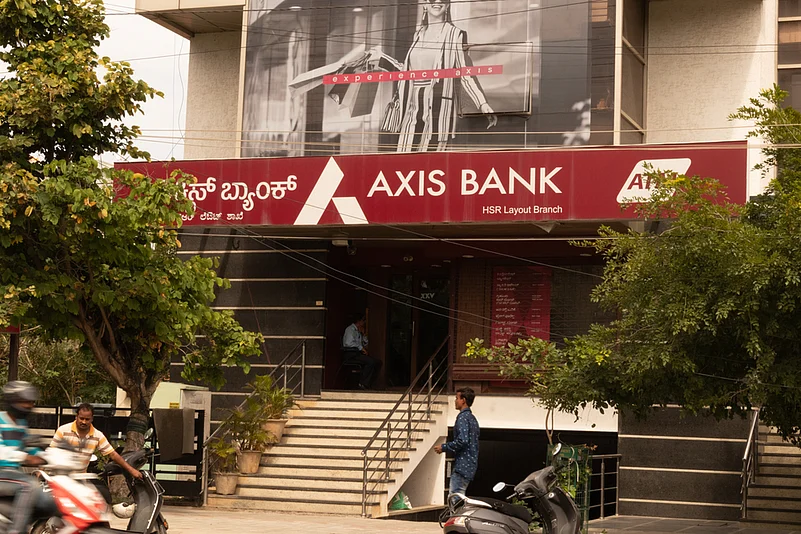Axis Bank is well capitalised with a self-sustaining capital structure for funding organic growth, its managing director and CEO Amitabh Chaudhry has said.
He said the bank expects to grow higher than the industry average on the credit side. It would be 400-600 basis points higher than the industry in the MSME segment this fiscal.
To fund business growth, he said, the bank has adequate capital to take care of its needs during the current financial year.
"Our overall capital adequacy ratio, including profit, stood at 17.84 per cent with a CET 1 ratio of 14.56 per cent. The Bank accreted 18 bps of CET-1 capital in Q2 FY24 and 54 bps in H1 FY24. Axis Bank is well capitalised with a self-sustaining capital structure for funding organic growth," he told PTI.
In March this year, Axis Bank completed the acquisition of Citibank's consumer business and non-banking financial company (NBFC) consumer business.
The bank paid Rs 11,603 crore for the acquisition. The sale excludes Citi's institutional client businesses in India.
Axis Bank is the fourth-largest issuer of credit cards with a total base of 8.6 million cards, and the deal added about 2.5 million credit cardholders, making it one of the top three card businesses in the country.
On the interest rate, Chaudhry said high rates are going to stay for some time as many have indicated.
Last week, RBI Governor Shaktikanta Das said interest rates will remain high, and any change will depend on the way the world evolves.
"Interest rates will remain high. How long will they remain high, I think only time and the way the world is evolving will tell," Das had said.
In the wake of the ongoing geopolitical crisis, major central banks across the world have raised their key policy rates to deal with high inflation.
The Reserve Bank also raised the short-term benchmark lending rate (repo) cumulatively by 250 basis points since May 2022. However, it paused its rate hike spree in February this year and retained the repo rate at 6.5 per cent.































